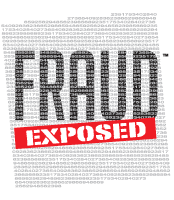According to the 2014 ACFE “Report to the Nations”, organizations lose, on average, 5% of revenues to fraud every year. In cases of asset misappropriation, the mean loss is $130,000 per scheme. For corruption cases, the mean loss jumps to $200,000 per year. The State of Connecticut is serious about mitigating these losses, and they have the task forces to prove it.
Financial Crimes Task Force
Established by the Secret Service in January of 2009 as a partnership between federal, state, and local law enforcement agencies, the CT Financial Crimes Task Force was created with the intention of investigating financial crimes including but not limited to check fraud, bank fraud, identity theft, wire fraud, and mortgage fraud. Members of the task force from state and local police departments receive Federal Special Deputation, which allows them to execute federal search warrants and make federal arrests related to task force investigations.
Connecticut Public Corruption Task Force
The CT Public Corruption Task Force was announced in February of 2015 as a partnership between five federal law enforcement agencies including the FBI, US Postal Inspection Service, IRS Criminal Investigation Division and the Inspector General’s Offices of the US Department of Health & Human Services and the US Department of Housing & Urban Development. Together they seek to identify corrupt public officials as well as federal, state, and municipal employees abusing their positions for personal gain. One of the first high profile cases they have had significant involvement with is that of David Bertnagel, the former Finance Director of Plymouth who embezzled in excess of $800,000 from the town. In May he was sentenced to pay restitution, serve two and a half years in prison and perform 1,500 hours of community service.
Organized Crime Investigative Task force
The Organized Crime Investigative Task Force, a specialized unit within the CT State Police, has the authority to conduct investigations pertaining to the enforcement of state laws as they apply to organized crime and racketeering, the conduct of public officers and employees as well as officers of public corporations, and any matter concerning public peace, safety, or justice. If the task force determines a crime has been committed, the evidence is referred to the Chief State’s Attorney for prosecution. The task force is in the news recently for their part investigating a Bridgeport boot and tow scandal involving a former state marshal, city officials and local tow companies.

